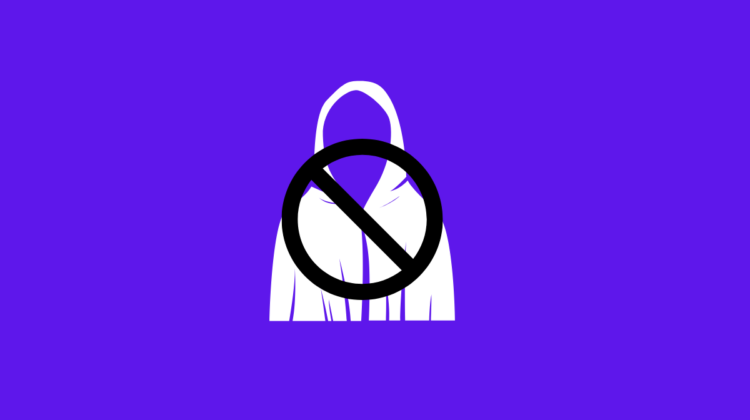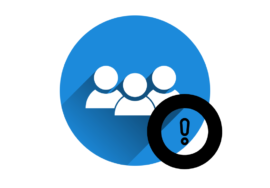
Why You Can’t Post Anonymously on Facebook Group – Solved
In the vast landscape of social media, anonymity has been both a boon and a bane. Platforms like Reddit and 4chan thrive on the veil of anonymity they provide, fostering open discussions and sometimes enabling negative behaviors.
However, Facebook, one of the largest social media networks, takes a different stance. While you can create private groups on Facebook, posting anonymously within these groups isn’t an option.
In this article, we’ll delve into what anonymously posting means, explore the reasons why Facebook doesn’t allow it, and provide troubleshooting steps for those seeking alternative ways to share their thoughts without revealing their identity.
Table of Contents
What is Anonymously Posting?
Anonymously posting refers to sharing content or engaging in discussions without revealing one’s true identity.
This can be achieved through various means, such as using pseudonyms, anonymous accounts, or posting without any identifiable information attached.
Anonymity can offer individuals a sense of freedom to express themselves openly, especially when discussing sensitive topics or sharing personal experiences.
Reasons Why You Can’t Post Anonymously on Facebook Groups
There are a couple of reasons why you might be unable to post anonymously on a Facebook group:
1. Group Settings
Admin Disabled Anonymity: The most likely reason is that the administrators of the group have simply disabled the “post anonymously” feature.
This is a setting they control, and many groups choose to keep it off to promote accountability and discourage negativity or trolling.
Group Type: Anonymous posting might not be available for certain types of Facebook groups, such as those focused on workplaces, schools, or neighborhoods where knowing the identity of the person posting is important.
2. Your Facebook Settings
While less common, Facebook may be limiting the anonymous posting feature in certain regions or for a specific user base for testing purposes. This is less likely, but something to consider.
3. Technical Glitch
In very rare cases, there could be a temporary technical glitch with Facebook that’s preventing anonymous posting. This is highly unlikely, but restarting the app or checking Facebook’s online help center can’t hurt.
4. Accountability and Responsibility
Facebook values accountability and responsibility in online interactions. By requiring users to post under their real identities, the platform aims to foster a safer and more transparent environment.
When individuals are accountable for their actions and words, it encourages more civil discourse and discourages abusive behavior.
5. Trust and Authenticity
Authenticity is at the core of Facebook’s philosophy. The platform strives to build trust among its users by ensuring that the content they encounter is genuine and comes from real individuals.
Allowing anonymous posting could compromise this trust by opening the door to fake accounts, trolls, and malicious actors spreading misinformation or engaging in harmful activities.
6. Community Guidelines and Moderation
Facebook has community guidelines in place to maintain a positive and respectful environment for its users.
Enabling anonymous posting could make it challenging to enforce these guidelines effectively.
Without knowing the identity of the poster, it becomes harder to hold individuals accountable for violating community standards or engaging in harmful behavior.
7. Prevention of Abuse and Harassment
Anonymity can embolden individuals to engage in abusive or harassing behavior without fear of repercussions.
By requiring users to post under their real identities, Facebook aims to deter such behavior and protect users from online harassment and bullying.
Troubleshooting Steps
Unfortunately, most of the reasons listed above are limitations and you can’t directly troubleshoot.
However, here’s a breakdown of why each reason exists and what alternative approaches you can take:
1. Group Settings & 4. Accountability/Responsibility
- Reason: Group admins might disable anonymous posting to promote responsible discussions and hold members accountable for their words.
- Action: You can’t change this setting. Consider if anonymously posting aligns with the group’s goals. Open communication might be better.
- Alternative: If anonymity is crucial, politely message the admins to see if they’d reconsider enabling it for specific situations.
2. Your Facebook Settings
- Reason: This is a less common reason, but Facebook might be limiting the feature in your region for testing.
- Action: Check the Facebook Help Center for any known issues or updates regarding anonymous posting.
- Alternative: If it seems like a Facebook issue, report it through their official channels.
3. Technical Glitch
- Reason: While rare, a temporary glitch might prevent anonymous posting.
- Action: Restart the Facebook app or check for app updates.
- Alternative: If restarting doesn’t work, wait a while and try again later. Report the issue to Facebook if it persists.
5. Trust and Authenticity & 6. Community Guidelines/Moderation
- Reason: Groups might value transparency and trust within the community. Anonymous posts can make moderation more difficult.
- Action: You can’t change these group settings.
- Alternative: Consider if there’s a way to phrase your post without needing anonymity. Focus on respectful communication.
7. Prevention of Abuse and Harassment
- Reason: Anonymity can be misused for harassment or spreading negativity.
- Action: You can’t change this setting.
- Alternative: If facing harassment, report it to the group admins or Facebook directly.
Conclusion
While anonymity has its merits in fostering open discourse and protecting privacy, Facebook’s decision to disallow anonymous posting within groups is rooted in its commitment to accountability, trust, and community safety.
By requiring users to post under their real identities, Facebook aims to create a more transparent and authentic online environment.
While this may limit anonymity on the platform, users can still find ways to share their thoughts and engage in discussions while maintaining a level of privacy and security.








